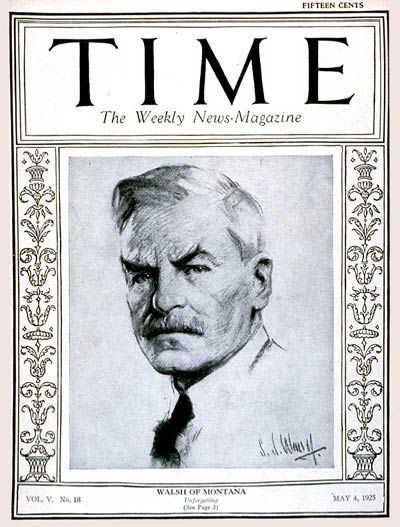It is often said – and correctly so – that we live in tumultuous times. Our devices spew forth a never-ending avalanche of information, much of it of dubious veracity. The “news cycle” is non-stop, populated by presidential tweets and cable news talking heads that aim not to inform, but mostly seek to agitate and “win” the narrative story line of the day.
The wheat is easily lost in the chaff. Disinformation and misinformation flourish. It can seem impossible to keep up or make sense and it is increasingly likely that we miss the important, while overwhelmed by the irrelevant.
Here are three stories that hit my screen in the last week, stories that seem to me to demand urgent attention and comprehensive political action.
The Brookings Institution rolled out a study of four U.S. cities last week, Boise included, that is both fascinating and sobering. In a nutshell the study finds that Boise’s economic engine, the principle power behind Idaho’s sustained economic growth, is fragile and subject to collapse.

The goose that laid the golden egg for the Idaho economic has been high tech, but Brookings starkly notes, in language you rarely hear from Idaho policy makers, that the goose is ailing. Hewlett Packard, which once employed 7,000 in the Boise Valley, now has 1,500. Micron, the homegrown success story, has half the 12,000 workers it paid at its peak. And, “despite Idaho’s generous state subsidies and a long local history as a darling firm in Boise, Micron chose Manassas, Virginia for its newest expansion, a $3 billion dollar investment expected to create about 1,000 jobs.”
“Recent economic growth has primarily come from non-tradable service sectors rather than from growth-sustaining, export-driven sectors,” the Brookings researchers said. “Population growth resulted in part from retirees who drive housing prices, but who have less incentive to fund public goods such as education and workforce development.”
And, not surprisingly, at all levels Idaho’s woefully inadequate educational system is in no way ready to support the kind of jobs that can continue to fuel the state’s economic growth. The Brookings study said “the Idaho Department of Labor projects 49,000 unfilled jobs by 2024, 36,000 of them in science, technology, engineering, and math,” but that the state produced only 2,000 graduates in those fields in 2016. Little wonder decent jobs flow to places with better educational stories to tell.
Idaho’s much ballyhooed efforts to improve college graduation rates have been a demonstrable failure. As Idaho Education News reporter Kevin Reichert noted recently, “With a completion rate mired at 42 percent, Idaho has made little progress toward the 60 percent threshold.” Even if Idaho some how sees a dramatic improvement in college completion rates it likely can’t meet high-tech needs that Reichert said “might take a completion rate approaching 80 percent.”
The second story, with a Spokane dateline, might not seem all that connected to the Brookings study about the state’s fragile future economy, but it is. Associated Press reporter Nicholas K. Geranios’s story was about how far-right extremist groups have never really left northern Idaho and eastern Washington despite the fact that two decades ago, the high profile Aryan Nation’s compound near Hayden Lake was wiped off the map.

Idaho’s national image, with direct impact on the state’s economic vitality, has too often in the past been linked to white supremacist and hate groups. It still is and, at some level, support for those on the dangerous fringe has gone mainstream, or at least what passes for mainstream, in the region’s Republican Party leadership.
“In the county that is home to Hayden Lake,” Geranios wrote, “Republicans last month passed a measure expressing support for U.S. entry of a prominent Austrian far-right activist who was investigated for ties to the suspected New Zealand mosque gunman.”
The woman who made the request of Kootenai County Republicans “was a big promoter of the hoax known as ‘Pizzagate,’ telling her online followers Hillary Clinton and other high-profile Democrats were involved in satanic rituals and child sex trafficking tied to a Washington, D.C., pizza restaurant.” That conspiracy theory, completely debunked of course, is still being widely promoted by various right wing media outlets.
That Republican Party officials would traffic in such nonsense is cause for profound concern and should immediately be repudiated from the highest levels, including from Gov. Brad Little. That GOP leaders haven’t disowned such behavior will only encourage more extremists to be more extreme.
The third story is related to the second. The London-based Institute for Strategic Dialogue (ISD) made a deep dive into various efforts to influence the recent European Union elections by what it called “tactical adoption of the ‘Putin playbook’ by non-state actors, from far right online militias to populist parties in their use of automated influence operations.” In other words, far right actors are continuing with renewed determination to undermine democratic institutions in Europe and, as special counsel Robert Mueller made crystal clear this week concerning Russian interference in the 2016 election, also in the United States.
ISD is a collection of business, academic and political leaders dedicated to pushing back against those who are “promulgating hate, division and conflict.” The group succinctly described the methods, including campaigns aimed at “distorting the political debate through the promotion of outrage, amplified by social media (often inorganically) and exploiting the traditional media’s desire to appear impartial to seize the agenda.”
In Europe the groups “build up their own highly partisan media channels” and they “take aim at the courts, forcing judges to retire early as in Poland and Hungary and pack the courts with compliant officers.”
“Public officials that don’t toe the new regime’s line are sidelined or replaced” often with a campaign of “smearing and intimidation, as happened to the Hungarian central bank governor.”
If you don’t believe the very foundations of representative democracy are under assault you’re not paying attention. Which closes the circle back to persistent inadequate attention to education. Without better education at every level, combined with knowledge of how to discern facts from disinformation, we risk being overwhelmed by our tumultuous times.
We must focus on what’s important.
—–0—–
(This piece originally appeared in the Lewiston, Idaho Tribune on May 31, 2019)










